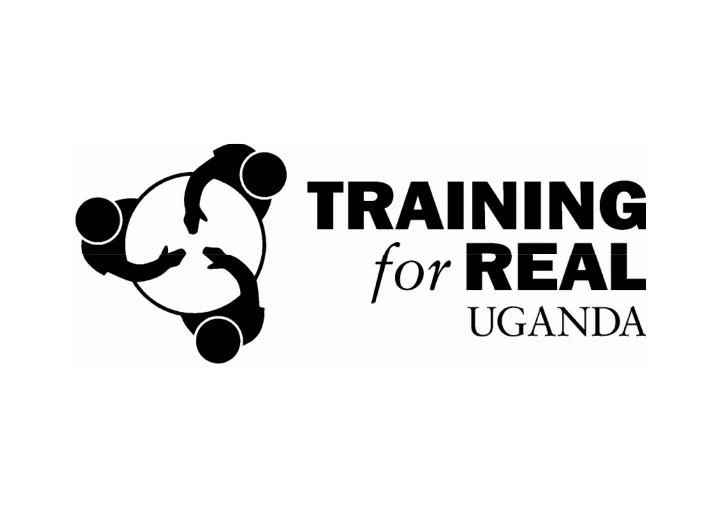

Today’s agenda Brian Reed Water, Engineering and Development Centre
Today’s agenda Institutional policy and Evaluation strategy Initial Validation study Analysis Delivery Design Knowledge
EKIMEEZA International WATER Negotiations
Why? Sue Coates Water, Engineering and Development Centre
Why? ~ a case study Nsamizi College
Background - Institute • Founded 1952 • Training arm – Ministry of Gender, Labour and Social Development • Mandate to train manpower to implement SDIP
Institute Courses • Original • New • Certificate courses • Demand driven /tailor-made courses • Middle-level • Grass-roots level
Training Needs Assessment • Institute programmes aligned to sector needs • Gaps identified during teaching and fieldwork – TNAs embedded in institute practice – Routine every four years for existing courses – Undertaken for each new course
Implementation of TNA • Gaps identified through: –Fieldwork –Observation –Practitioner feedback –Clients –Students
Implementation of TNA /2 • Stakeholder consultation: – Practitioners (NGOs, CBOs) – Public servants – Colleagues – Employers – Policy makers • Inputs vary: lower for review, more expensive for new course
TNA for BA, PGDip • Design BA – social development • Design five short courses • Design course for councillors • Review and update three existing courses
Capacity Deficit • Staff development • Co-opt from other institutions • Hire part-time staff • Invite guest lectures
Change Management • Curriculum change process • Requires adequate resources • Commitment • Teamwork • Ready to accept change
Benefits of TNAs • Provide relevant training • Produce competent graduates • Keeps existing programmes relevant • Engage with demand – HIV-Aids
What? Frank Odhiambo Water, Engineering and Development Centre
Introduction • About TfR • What are the issues? – Sector, institutions, individuals • What should we be doing? • How can we do it?
About TfR – Matching supply to demand • dialogue • Hallmark – Assumes quality information
What are the issues? /1 • Sector Level – What resources are available? – National resource centre? • Consolidating resources – Information management? • Grey literature • Learning from workshops • Dissemination
What are the issues? /2 • Institutional Level – Information resources – Knowledge exchange – Information sharing • Resource centres • Interpersonal communication
What are the issues? /3 • Individual level – Where do we find information? – How do we know it is current? – Where should we be looking? – How can we trust it?
What should we be doing? /1 • Institutional level – Leverage IT capability – Encourage knowledge sharing • Develop structures – Provide clarity about goals and agendas – Allocate time for information seeking – Mainstream dissemination
What should we be doing? /2 • Individual Level – Take responsibility – Network – Read !!
Keeping up to date /1 • Search techniques – integrated water resources – +integrated +water +resources – “integrated water resources” – +Coates – +Coates –Sanitation – moody awori “Moody Awori”
Keeping up to date /2 • Search techniques – Refining your search • Search within results • Domain name +domain:ug • “integrated water resources management” +title:text – Assessing authority
Keeping up to date /3 • Internet Resources – Resource Centres • WELL www.lboro.ac.uk/well – Enquiry Service – Document Delivery • WSSCC www.wsscc.org – Source Weekly www.irc.nl – World Bank, WSP …
Keeping up to date /4 – Sanitation Connection www.sanicon.net – Pubmed www.ncbi.nlm.nih.gov/entrez – Ingenta www.ingentaconnect.com – Directory of open access journals www.doaj.org – Virtual library www.vlib.org – Reference www.britannica.com
Keeping up to date /5 – Reference www.yourdictionary.com – Google scholar • www.scholar.google.com • Abstracts, authors – Use Bookmarks • ‘catalogue number’ • Save searches
Keeping up to date /6 • Traditional – Newspapers; local information – Informal contacts – Contact authors
How? Brian Reed Water, Engineering and Development Centre
How? Talking 1. Do you dislike listening for a long time? ( See, picture, imagine ) 2. Do you enjoy listening/ talking? ( Say, hear, think ) 3. Do you like to gesture? ( Feel, touch, hold )
How? Contacting people 1. Do you prefer face to face meetings 2. Do you prefer telephone? 3. Do you like to talk whilst walking / other activity?
How? Doing something new 1. Do you like to see demonstrations/ diagrams/ flow charts? 2. Do you like verbal or written instructions? 3. Do you like try it straight away and try different ways?
How? Reading Doing Watching Asking Discussing Visualising Thinking Researching Writing Conceptualising Listening
Informal Goals Structured Alone Interests How? Theoretical In groups Practical s u o Formal e n a t n o p S
Learned Mentor Visits society How? Books T e c h n i c a l Training Conferences a s On the job s i s t a n c e courses Expert Journals Activities Discussion panel Groups Workshops Lectures Trials Experience D i s t a n c e l e a r n i n g
How? ~ a case study Sam Kayaga Water, Engineering and Development Centre
TfR on the Internet
Recommend
More recommend